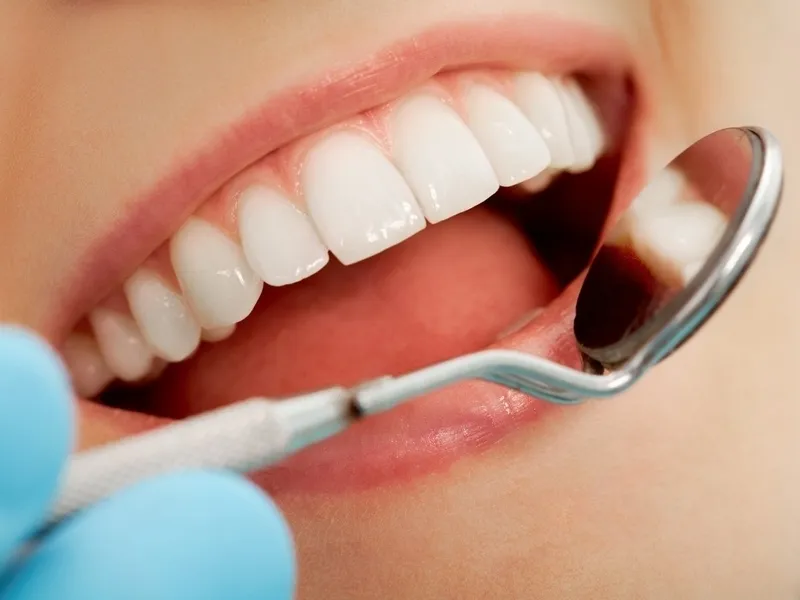The risk of diabetes and the possibility of controlling it satisfactorily are strongly related to oral health and, in particular, with periodontal health.
And it is that there is a growing scientific and clinical evidence that links diabetes with gum diseases, and vice versa: not only people with diabetes are more risk of periodontitis, but periodontitis can initiate or increase insulin resistancein a similar way to how obesity does;In fact, the presence of gum problems can help identify the presence of this metabolic disease.
Therefore, oral and periodontal health should be a fundamental integral part of diabetes management.Starting from this reality, and aware of the role that dental clinics can play in the early detection of diabetes and in the control of already diagnosed patients, an ambitious dissemination project on the important effect of the health has been launchedof the gums in the control of diabetes.
For this reason, periodcies and dentists, endocrinologists and patients join in an awareness campaign on diabetes and periodontal diseases.The Spanish Periodontics Society (SEPA), the Spanish Society of Diabetes (SED) and the Federation of Spanish Diabetics (Fede), with the involvement of the Sunstar company, actively collaborate in the development of informative days on the link between diabetes and diseaseof the gums.Under the motto ‘Take care of your gums, control diabetes’, conferences are being carried out in seven Spanish cities during these days.
It is the first time that scientific societies are joined to carry out informative days aimed at patients focused on this problem, in an initiative that is a pioneer in Europe and is conceived as a campaign that aims to facilitate scientific dissemination to patients and promote their training.As the president of SEPA, David Herrera stands out, «the training that people who attend the talks attend will be able to become a vehicle for knowledge transmission, but they are also working on informative materials that maintain interest and access tothe knowledge once the face -to -face events are finished ».
The dental clinic is an ideal place to identify unknown diabetes, as well as to perform all preventive tasks, early diagnosis and treatment required by a person with diabetesdavid herrera
For José Luis Herrera Pombo, coordinator of the Working Group SEPA-SED, "it is necessary to inform the protagonists of this reality, which are the people with diabetes."So far, he emphasizes, "this disseminating work had only been done with specific actions, but a concerted action had not been organized, in several cities of Spain."
And, as Herrera stands out, "we need the message to reach the message that taking care of the health of the gums we will take better care of diabetes and, even, we may be helping to prevent its appearance."Moreover, for this expert there is no doubt that "the dental clinic is an ideal place to identify unknown diabetes, as well as to perform all preventive tasks, early diagnosis and treatment that a person with diabetes needs."
Little recommended couple
Diabetes and gum disease are a little advisable couple.In recent years it is being stated that the association between these two diseases is bidirectional: not only diabetes increases the risk of periodontal diseases, but periodontal diseases can affect diabetes, harming blood glucose control.AsSynthesizes Edelmiro Menéndez, president of thirst, "oral alterations are another complication of diabetes and, at the same time, good metabolic control also improves oral health."
Therefore, the head of SED advocates improving the collaboration of dentists and diabetologists.«Dentists could play an important role in the detection of diabetes in those not diagnosed;In addition, they could also help detect people with diabetes with a bad control manifested in gingival complications, ”he says.On the other hand, Menéndez continues, "Diabetologists must pay attention to oral alterations as a manifestation of non -controlled hyperglycemia to send these patients to dentists and receive adequate care."
Periodontal diseases are more frequent and are usually more advanced in people with diabetes (both type 1 and type 2);Similarly, it has been pointed out that these gum disorders progress more rapidly in these patients and that bad blood glucose control in people with diabetes is also associated with a significant increase in the risk of loss of level of insertion and alveolar bone.In the NHANES III (National Health and Nutrition Survey) study carried out in the US, adults with poorly controlled diabetes showed a higher 2.9 risk of having periodontal disease than those with good control of diabetes.
more risk
But, in addition, the presence of inflammation in the gums has a negative impact on the control and risk of complications in people with diabetes.It has been demonstrated, for example, that a bad periodontal health correlates with worse blood glucose control and with an increase in the risk of complications associated with diabetes (cardiovascular disease, renal disease, ...).
On the contrary, adequate periodontal treatment improves blood glucose in people with diabetes: recent studies indicate that optimal treatment reduces an average of 0.4% in glycosylated hemoglobin values (which is considered a clinically significant decrease that, inMany occasions, it is not achieved with oral antidiabetics used as second medication).
Health benefits are evident, but also at the economic level.A study of US medical insurance companies has shown that periodontal treatment and gum health maintenance can reduce the economic costs derived from diabetes up to 40%.


